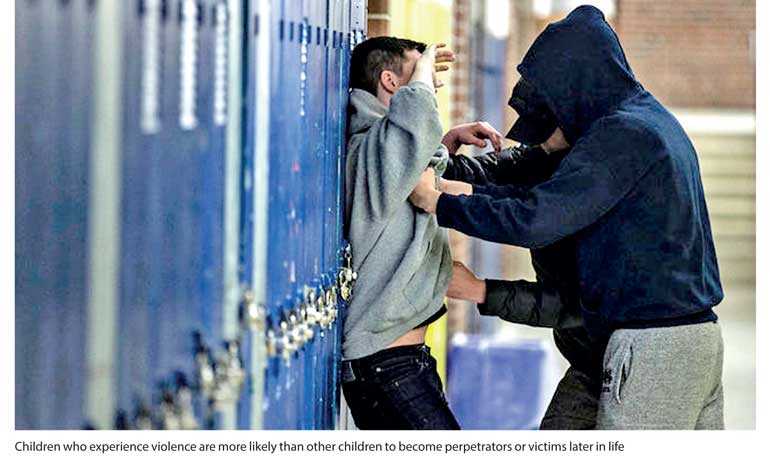Monday Feb 23, 2026
Monday Feb 23, 2026
Friday, 7 September 2018 00:00 - - {{hitsCtrl.values.hits}}

Half of students aged 13 to 15 worldwide – around 150 million – report having experienced peer-to-peer violence in and around school, according to a new report released by UNICEF yesterday.
An Everyday Lesson: #ENDviolence in Schools says that peer violence – measured as the number of children who report having been bullied in the last month or having been involved in a physical fight in the last year – is a pervasive part of young people’s education around the world. It impacts student learning and well-being in rich and poor countries alike.
“Education is the key to building peaceful societies, and yet, for millions of children around the world, school itself is not safe,” said UNICEF Executive Director Henrietta Fore. “Every day, students face multiple dangers, including fighting, pressure to join gangs, bullying – both in person and online, violent discipline, sexual harassment and armed violence. In the short-term this impacts their learning, and in the long-term it can lead to depression, anxiety and even suicide. Violence is an unforgettable lesson that no child needs to learn.”
The report outlines a variety of ways students face violence in and around the classroom. According to the latest available data:
“What we need to understand is that violence impacts children and young people in many ways. And particularly for children in schools it has far-reaching consequences, such as decreased self-esteem and inability to learn and succeed. Some may even drop out of school altogether – ultimately making school an unpleasant place,” said the UNICEF Representative for Sri Lanka, Tim Sutton.
According to the UNICEF global report, the cost of not acting is unacceptably high – for children, their families and communities, and for society as a whole. Toxic stress associated with violence in early childhood can impair brain development and damage the nervous system. Furthermore, children who experience violence are more likely than other children to become perpetrators or victims later in life.
“Violence in schools is so common it may seem that there is nothing we can do stop it. But we can. It’s entirely preventable. And because we can prevent it, we must, classroom by classroom, school by school, district by district, we can #ENDviolence in every school across Sri Lanka. We must stand up, speak out and end violence,” said Tim Sutton
An Everyday Lesson: #ENDviolence in Schools is released as part of the UNICEF #ENDviolence global campaign. It is also part of a collective effort to shed light on and spark action to #ENDviolence in and around schools by organizations including UNICEF, the United Kingdom’s Department for International Development (DFID), UNESCO, other members of the Global Partnership to End Violence Against Children and UN Girls Education Initiative (UNGEI).
To end violence in schools, UNICEF and partners are calling for urgent action in the following areas:
The global call for action amplifies one of the key recommendations by the UN Committee on the Rights of the Child, which called for Sri Lanka to prohibit corporal punishment by law, in all settings, repeal any legal defence, and to ensure that these laws are effectively implemented.
UNICEF is encouraging young people around the world to raise their voices to #ENDviolence in and around schools by holding a number of #ENDviolence Youth Talks around the world including in Sri Lanka. This will give young people a platform to share their experiences of violence and voice what they need to feel safe in and around school, which will inform a set of recommendations to global leaders.